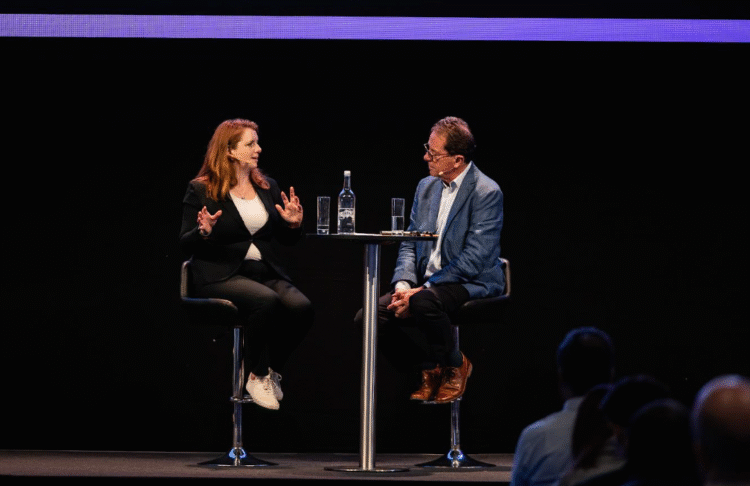Businesses need to open their minds to flexible working if the UK is to tackle entrenched unemployment and meet ambitious government targets to ‘Get Britain working’, Alison McGovern, minister of state for employment, has said.
The minister said the government wants to achieve an 80 percent employment rate nationwide, but reaching that figure will depend on engaging the 2.8 million people currently out of work due to long-term sickness.
Her call for employer engagement in tackling unemployment comes as part of the government’s plans to support people who’ve been out of work for extended periods, particularly those side lined by long-term illness. With unemployment increasingly linked to health conditions rather than lack of skills or opportunity, the government says employers must adapt if they want to access people with skills and experience.
In conversation with CIPD CEO Peter Cheese at the institute’s Festival of Work event last week, McGovern said: “In the health part of our [Get Britain Working] plan, we have worked with our mayors in city regions, because some of this is highly locally concentrated. So if you look at a map of the UK and you identify those areas where there’s high levels of people who’ve been out of work sick, it’s very heavily concentrated in some towns and cities, and that’s to do with the history of the labour market in the UK. It’s to do with things that happened years ago where you had big concentrations of industries closing down.
“So our mayors are now working with businesses, large and small, and with colleagues in the NHS to give advice about how you can help support people who’ve had a health condition.”
One question they are working on is ‘How do we get small businesses good access to occupational therapy?’, she explained. Another question is around flexible working, so ‘How do you make sure that businesses understand what they can do to shape jobs so that it’s good on both sides.
“A lot of businesses would like somebody who’s got experience in life to come into their business. But it might mean being a bit more flexible about what working patterns look like,” McGovern said.
One major barrier to getting people back into work after long term unemployment is the job-matching Jobcentre system.
McGovern said that when she and secretary of state for employment Liz Kendall took office, they uncovered that only one in six employers ever use the Jobcentre service.
As a result the government is overhauling the system with £55 million to “really supercharge our Jobcentre change process, and much of that is to build ‘Jobcentre in your pocket” app, she said.
“The NHS app has been really good. In DWP, we are building [the] ‘Jobcentre in your pocket’ [app] to get to a situation where we’re much more flexible about how people could receive our support.
“Many of our customers, particularly those who are that little bit closer to the labour market, would really benefit from getting our insights and help to understand what opportunities are there for them at any time and in a way that is digitally enabled. And if we do that, we can free our frontline colleagues from some of the laborious admin that they have to do.”
McGovern said that where the technology can take the strain, “it can free human beings to do what only human beings can do for other people, which is to offer people a bit of solidarity, a kind of arm around the shoulder. If you’ve experienced poverty and you’ve been out of work for a while, you need another human being to say to you, it’s okay, take a risk, back yourself”.











